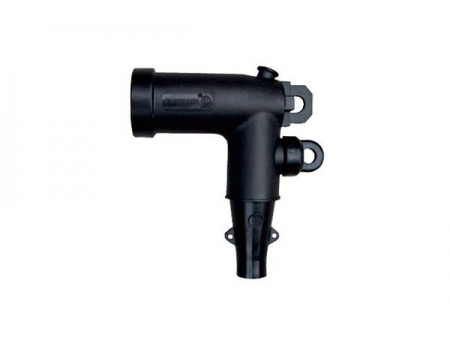What’s In a Name? How To Choose the Perfect Name for Your Tech Business

A well-chosen name can help your tech business stand out and shine, becoming memorable in any conversation, which means that it’s not just a label – it’s the reflection of your brand, lending authenticity and trustworthiness to your company. Try to come up with a name that conveys the passion and energy you’ve dedicated to getting the business off the ground, even if it’s not a groundbreaking innovation.
Okay, you’ve seen those seemingly endless lists of must-haves for every brand name, and you might feel pretty overwhelmed, but don’t fret because you don’t have to tick every box. Not even the most successful corporations meet all the criteria. The name of your tech business is a compromise between being strategic, creative, and technical. It should be easy to read and understand, effectively communicating your value proposition.
The name is your first impression in a competitive industry full of new ventures, and you never get a second chance to make things right. People rely on first impressions daily, so you can be sure they’ll remember your name for the rest of the journey with you. For many entrepreneurs, naming is more challenging than creating a good business idea. And I imagine it’s the same for you. If you’re having trouble coming up with a name for your tech business, this’ll come in handy:
Steer Clear of Using Words That Are Too Literal, Specific, Or Restrictive for Your Brand
Maybe you’ve invested in the blockchain boom. And why not? There are fewer obstacles when it comes down to starting a blockchain company, so all you need is a great idea, a team of highly skilled devs, and a white paper to describe your project. Ethereum’s had a profound impact on the space, and Binance data shows the daily trading volume has hit an all-time high in anticipation of a spot ETF approval. By the way, the SEC has just given the green light.
Naming a tech company isn’t a simple “job” but a critical step in creating a successful brand. Don’t name the business using words that describe what you do – aka don’t use a literal name – if you’re not willing to rebrand in the future as your products and services expand and evolve; it happens all the time with companies that start with a brilliant offering and later need to expand their operations.
Have in view a flexible and scalable name, and avoid the temptation of using words that are too literal, which often lack memorability and don’t generate excitement. It must be broad enough to allow you to expand your product or service offering in the future, so work out the top benefit/attribute of your technology – think about it and brand it. Think about the business you want your new venture to become in 5 or 10 years, and select a name that mirrors your vision rather than the version of the business you’re launching.
Get Feedback from Family and Friends
More often than not, the most effective business names aren’t bargained for and are worthy of attention, characteristics that only creativity can help deliver. The perfect name must resonate with your style and vision, no matter if you’re looking for something original, catchy, or truly unique, so ensure your idea is viable and legally available. If you’re stuck or have trouble coming up with a good business name, get together with your friends and family and have a brainstorming session.
Everyone must put their idea on the table, even if it sounds silly or unusual. Just because you’re the owner of the business doesn’t mean you must navigate the challenges alone, so get the best help you can and recognize your own limitations. If you want feedback from a larger group of people, create an online survey and collect opinions from anyone willing to put in their two cents. Once you have a list of ideas, thoroughly examine your options in terms of feasibility and fit.
Make Sure Your Tech Business Name Is Search-Friendly (And Twitter-Friendly)
Many tech startups don’t rank for their brand names in Google search results, missing out on lots and lots of customers. It’s not that big of a deal if you’re just a few weeks old, but it can be a huge problem if you’re an established business because customer churn affects performance, revenue, and profitability. Having a search-friendly business name allows you to reach more people and build stronger brand awareness.
If you opt for a common name for your tech business, be certain it’ll be buried way lower in the SERPs, meaning it’ll be nowhere to be found. It’s a frustrating thought, but don’t despair. Try to sneak in a keyword in your name to help others find your website when searching for the products or services you’re offering, but don’t stuff your name with generic industry terms because it won’t give you brand recognition.
Run a test on the brand name to see if it’s search-friendly by googling your choice. Equally, the tech business name you decide on shouldn’t have too many characters since people will have a hard time remembering it, and neither should it be too short or abbreviated. You’ll want your social media handles to match the name advertised. Besides Twitter (now called X), your name must look consistent on Facebook, Instagram, and LinkedIn, to name a few.
Also Read: The 4 Benefits of Hiring an Online Business Coach for Entrepreneurs
Wrapping It Up
All in all, finding the right name for your tech startup can make or break your success, so come up with a winning title that helps you stand out in your niche. As the business owner, you’ll have to live with it for a long time, so ensure you’re happy with your choice and have faith it’ll resonate with the audience and stand the test of time. Since you’re entering an industry with a lot of competition, choose a business name that’ll help you avoid legal hurdles – if a company has a registered trademark for its name, it can sue you for infringing upon its intellectual properties.
If you believe that you could use the help of trade mark lawyers, get in touch with Briffa.






